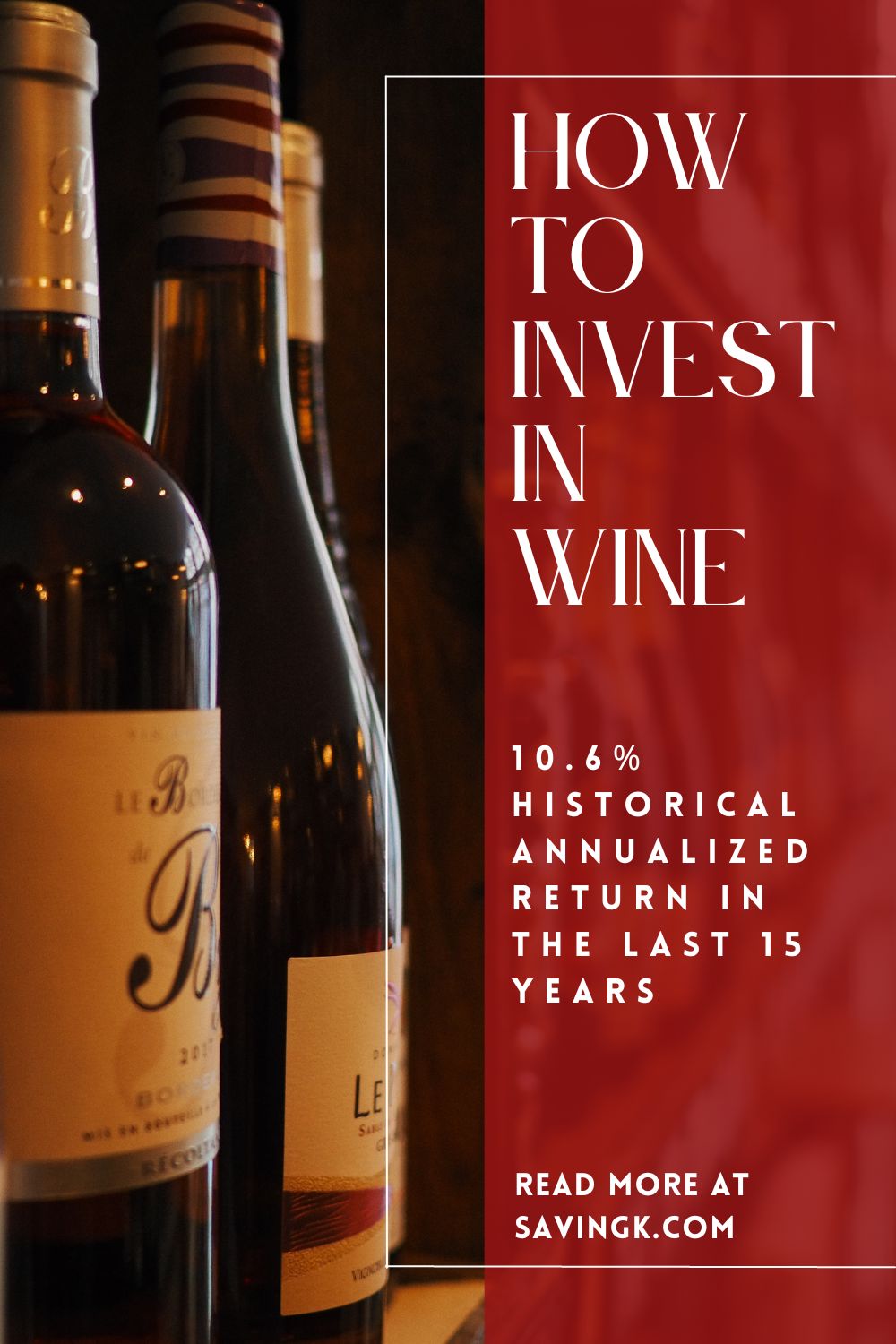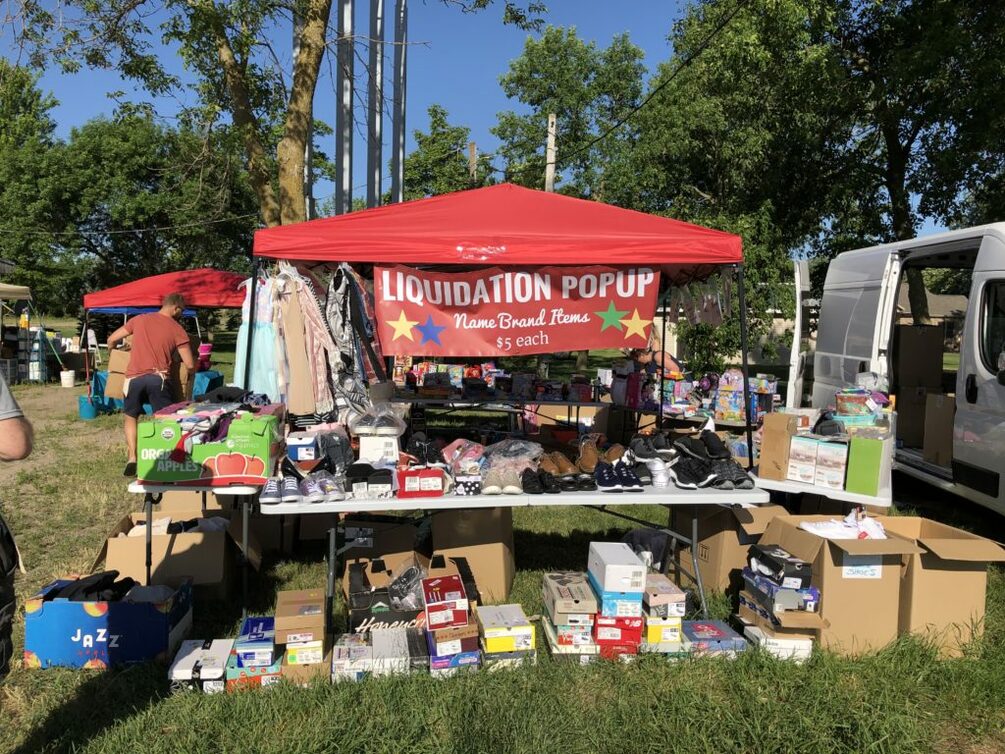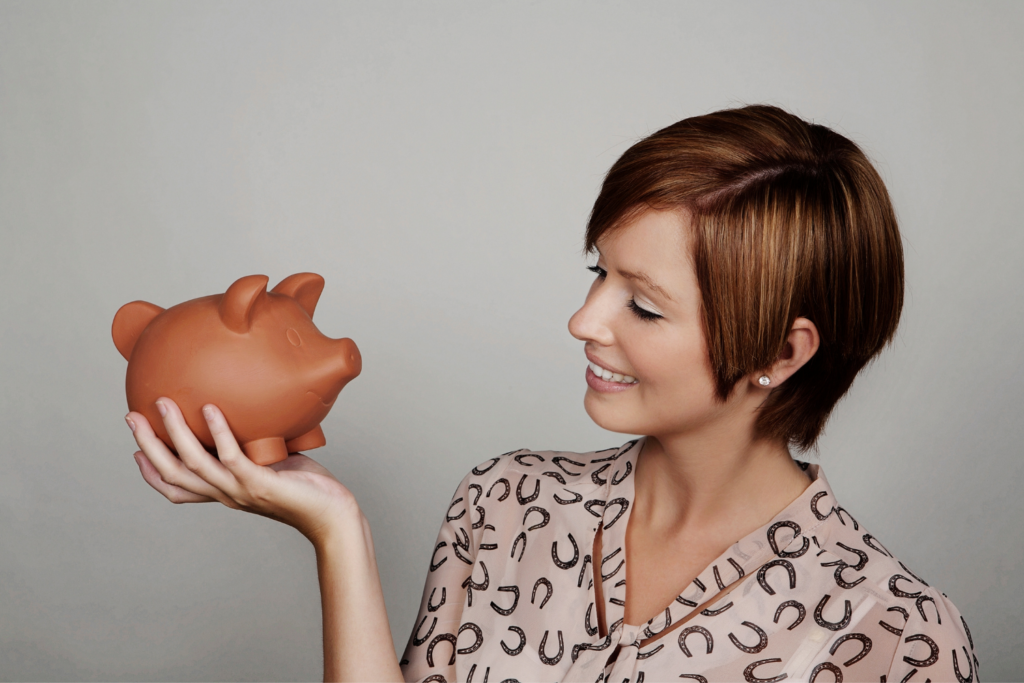
Wine has long been associated with wealth, luxury, and status. But is it also a smart investment? Can you make money by investing in wine? And if so, how do you get started? In this blog post, we’ll explore the world of wine investments and provide some tips for getting started.
Contents
How Can I Invest In The Wine Industry?
Here are some different ways to invest in the wine industry.
- Buy shares of wine collections (through a trading platform such as Vint.co)
- Buy wine futures (these are contracts that allow wine collectors to pre-order and purchase wines before they are released, enabling them to secure access to high-end and exclusive vintages.)
- Invest in wine stocks (such as such as Constellation Brands, Diageo or Truett-Hurst)
- Purchase individual bottles of wine and hold them as an investment. You can even invest in bottles of fine wine and outsource the storage and insurance with Vinovest.
Ultimately, the best option for you will depend on your risk tolerance and financial goals, but in this post, we will mainly focus on buying individual bottles of wine.
The Basics of Investing in Wine
Wine investments are exactly what they sound like—investing money in wines from select regions or wineries with the expectation that the value will appreciate over time. For example, if you invest $1,000 in a bottle of Bordeaux Château Mouton Rothschild 1982 today, you could expect to sell it for upwards of $3,000 five years from now (depending on market conditions).
How To Invest In Wine Bottles

If you’re interested in investing in wine, there are several things you need to know. First, you’ll want to familiarize yourself with the different types of wines and what regions they come from. Knowing about the vintages and wineries, appearance, taste, and aromas can help you identify potential investments.
Next, you’ll need to do some research on the current market for wines. Focus on finding out what different bottles are selling for, which ones have been increasing in value over time, and which ones may be a good investment. You’ll also want to keep an eye on auction sites, as well as websites where people buy and sell wines, such as WineBid.
Finally, you’ll need to find a reputable source for your wine purchases. Buying from an established merchant can help ensure the authenticity of any wines you buy, as well as provide some assurance that the price is fair. You may also want to consider joining a wine investment club or hiring a professional consultant who specializes in wine investments.
The following online retailers are all reputable and sell fine wine that appreciates with time:
- FrootBat – they sell the world’s finest whiskey, wine and liquor and specialize in vintage and rare bottles. They even will buy your bottles!
- Wine Access – Find expertly curated wines and the stories behind them. Wine Access is an official partner and wine provider of the MICHELIN Guide.
- Wine.com – You can search wine by variety and/or region. They offer free shipping on every order or you can pickup at over 20,000 convenient locations.
Which Wines Should I Invest In?
When it comes to investing in wine, not all wines are created equal. As with any financial investment, there is risk involved and certain factors can affect the price of your wine. That said, some wines tend to be more reliable investments than others. Generally speaking, if you’re looking for an investment opportunity with minimal risk and good potential returns, look for bottles from renowned winemakers or iconic vintages from regions with a rich history. These types of bottles are typically more expensive – but that doesn’t necessarily mean they are better investments. It all comes down to personal preference and budget.
Benefits of Wine Investing
Investing in wine can be a great way to diversify your portfolio and generate long-term returns. It’s also an excellent way to gain exposure to high-end wines that you may not otherwise have access to. Additionally, investing in wine can help diversify your income, and it can be a lot of fun – visiting vineyards to taste wine is definitely a perk! Might I suggest going on some Temecula wine tours to test out wine. And if you need help figuring out what to wear to a winery, Style Your Occasion has you covered!
We recommend building a wine investing portfolio with the help of wine experts at Vinovest.
Risks of Wine Investing
Like any investment, investing in wine comes with some risks. For example, the market for wines is highly volatile and subject to change quickly. Additionally, many experts advise against buying wines as an investment if you don’t know what you’re doing, as it can be difficult to accurately assess their value. Finally, there is always the potential that your wine could spoil or become damaged during storage.
Is Investing in Wine Better Than Stocks?
The answer to this question depends on your goals and financial situation. If you’re looking for quick returns or just want to diversify your portfolio without taking on too much risk then stocks may be the better option for you. However, if you have the capital to invest and are willing to wait out market fluctuations then investing in wine can be quite lucrative. Plus, it can add some excitement and diversity to your portfolio!
Investing in Wine FAQs
Investing in wine can be a great way to diversify your portfolio and generate long-term returns. However, certain risks come with investing in wine, and it’s important to understand the basics before getting started. In this guide, we’ll answer some common questions about investing in wine.
What are the key things to consider when investing in wine?
When investing in wine, it’s important to consider the quality of the bottle, its age, and its rarity. You also want to make sure you buy from a reputable source, such as an established merchant or auction site.
How can I tell if a bottle is worth investing in?
One of the best ways to determine if a bottle of wine is worth investing in is to research the current market for it. Look at the average prices, ratings from critics, and reviews from other consumers. You can also consult a professional wine consultant who specializes in investments to get their opinion on the bottle.
How much should I invest in wine?
The amount you invest in wine will depend on your personal financial situation and goals. Generally speaking, experts recommend investing between 10-20% of your portfolio in wine. This will help you diversify your investments and minimize risk, while still giving you the chance to see good returns.
What is the best wine to invest in?
The best wine to invest in will depend on your personal preferences and budget. Generally speaking, look for bottles from renowned winemakers or iconic vintages from regions with a rich history. These types of bottles are typically more expensive, but they also tend to be better investments. Ultimately, it’s up to you to decide which type of wine is the best investment for your portfolio.
How can I invest in wine online?
You can invest in wine online through several platforms, such as Liv-ex. These services allow you to purchase bottles from sellers or auction houses all over the world. You can also invest in wine funds, which are portfolios of wines managed by experienced professionals.
Can you invest in wine stocks?
Yes, you can invest in wine stocks. There are several publicly traded companies that are in the wine industry that make for great investments. Additionally, there are a number of wine-focused exchange traded funds (also known as wine ETFs) available for investors.
What is the best wine stock to invest in?
The best wine stock to invest in will depend on your goals and risk tolerance. However, some of the most popular wine stocks include Constellation Brands (NYSE: STZ), Pernod Ricard (EPA: RI), and Treasury Wine Estates (ASX: TWE).
How do you make money investing in wine?
You can make money investing in wine by buying bottles that appreciate over time. As the demand for certain wines increases, so too will the value of the bottles. Additionally, you can make money by selling wines at a higher price than what you bought them for. Finally, investing in wine stocks and ETFs can also be a great way to generate returns.
Is investing in wine legit?
Yes, investing in wine is a legitimate way to diversify your portfolio and generate returns. Make sure to consult a professional if you’re unsure about any aspect of investing in wine.
Do you need a license to invest in wine?
No, you do not need a license to invest in wine. Wine is an unregulated market, so anyone can buy and sell bottles without any special qualifications or permits.
How should I store my wine at home?
You can store your wine at home if you have the proper conditions. Wine should be kept in a cool, dark place with temperatures between 10-15 degrees Celsius which converts to 50-59 degrees Fahrenheit. Additionally, the wine should be stored on its side and away from any sources of vibration or heat. If you are serious about investing in wine, it may be worth investing in a temperature-controlled cellar or a professional storage facility.
What is the best way to sell my wine?
The best way to sell your wine will depend on the type of bottle you have and its age. If you’re looking to quickly liquidate your investments, then you may want to look into an online auction site or a local wine merchant. However, if you’re looking for the best possible return, then you may want to wait for a major wine event or auction.
Conclusion
Investing in wine can be a great way to diversify your portfolio while also adding some excitement and fun! When done wisely and after researching different types of wines carefully based on their potential return rate and market conditions, you can reap rewards over time – both financially as well as through enjoying some tasty pours every once in a while! There is certainly risk involved but when done right it can pay off handsomely – just make sure to do your due diligence before starting any kind of investing! Happy sipping!
Not into investing in wine after reading all that? How about investing in guns or investing in silver and gold?




